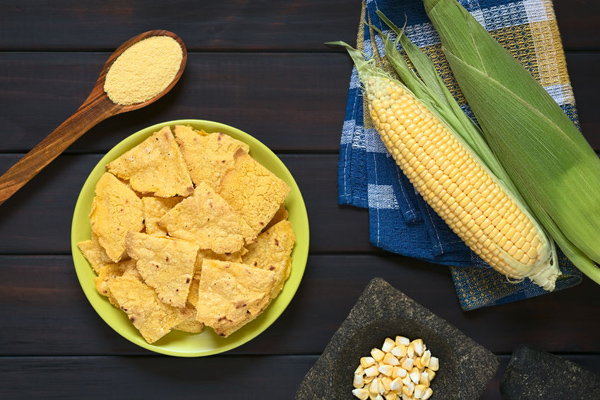The US Food and Drug Administration (FDA) has approved the voluntary fortification of corn masa flour with folic acid. Manufacturers may now begin to add up to 0.7 mg of folic acid – the industry standard for other enriched cereal grains – per pound of corn masa flour.
Folic acid is a synthetic form of the B vitamin, folate, which may prevent neural tube defects in newborns, when taken regularly by pregnant women. Pregnant women who have a folate deficiency have an increased risk of giving birth to a child with a neural tube birth defect, which may affect the brain, spine and spinal cord.
Corn masa flour – or masa – is a staple in Latin American cooking. It is made by heating corn in an alkali solution and subsequently grinding the mixture. The masa is used to make a number of food products including tortillas, taco shells, tamales and corn chips.
Manufacturers of breakfast cereals, infant formulas and medical foods, currently have the option of adding folic acid to their products to help consumers get enough of the nutrient from their diets. As of the late 1990s, folic acid supplementation of enriched grain products like breads, pasta and other noodles, has been mandatory.
In 2012, the American Academy of Pediatrics, the March of Dimes Foundation and others, submitted a food additive petition to the FDA to add corn masa flour to the list of products eligible for voluntary fortification with folic acid. The appeal was made to ensure that US women who regularly consume products made with corn masa flour, would have a sufficient intake of folic acid during their childbearing years.
“Increased consumption of folic acid in enriched flour has been helpful in reducing the incidence of neural tube defects in the general population,” said Dr. Susan Mayne, director of the FDA’s Center for Food Safety and Applied Nutrition. “Our analysis shows that adding folic acid to corn masa flour will help increase the consumption of folic acid by women who consume this flour as a staple in their diet.”
Before food additives are approved by the FDA, a scientific review of the ingredient is conducted to determine the safety of dietary consumption of the nutrient for the general population. The FDA evaluated available toxicological data on folic acid, and investigated the stability of the vitamin in corn masa flour.
As a result of the investigation, the FDA concluded that no more than 0.7 mg of folic acid should be added per pound of corn masa flour. According to the FDA, the decision to approve supplementation of masa was based on the safety data available, and was not made because of the vitamin’s potential to decrease the risk of neural tube birth defects.












Join or login to leave a comment
JOIN LOGIN